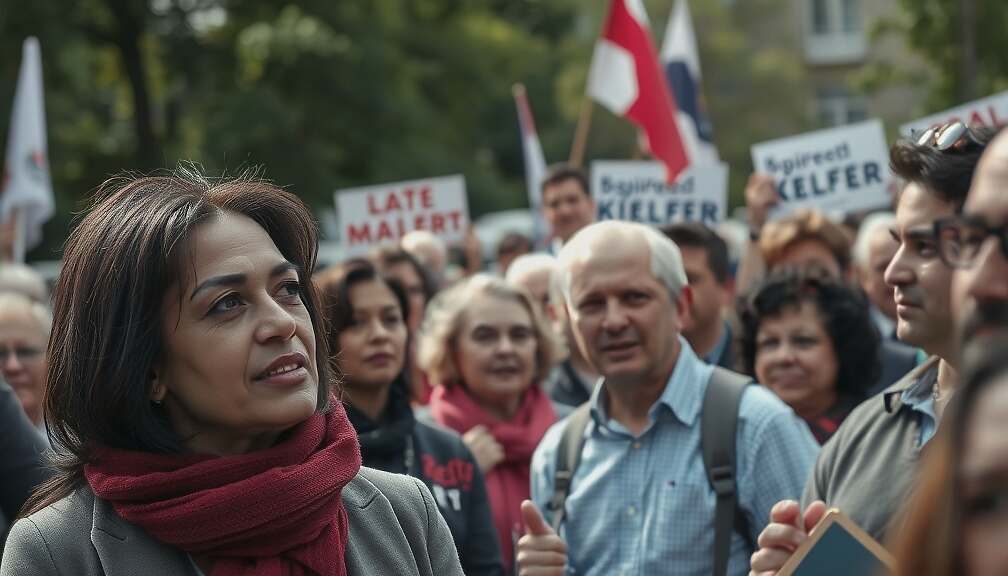The latest ZDF Politbarometer paints a concerning picture of Germany’s political landscape, revealing a continued decline for the conservative Union bloc (CDU/CSU) while the far-right Alternative for Germany (AfD) continues its ascendance. Were a federal election to occur this Sunday, CDU/CSU would garner 26% of the vote – a drop of one percentage point – placing them neck and neck with the AfD, which would also secure 26%, marking a one-point increase.
This shift underscores a deepening disconnect between the traditional powerhouses of German politics and a significant portion of the electorate increasingly drawn to the AfD’s populist and often nationalist messaging. The survey’s results highlight the challenges faced by the CDU/CSU in reconnecting with voters, particularly regarding concerns surrounding immigration, economic anxieties and a perceived lack of responsiveness to citizen needs.
The Social Democrats (SPD) continue to struggle, registering at 14% – also down one point – indicating a persistent lack of momentum despite government efforts. The Green party demonstrates a slight rebound, reaching 12%, likely fueled by renewed focus on environmental policy and climate action, yet this remains short of reclaiming their previous dominance. The Left party stagnates at 10%, unable to capitalize on the broader political anxieties.
Significantly, the combined support for all other parties, including the newly formed BSW and the Free Democratic Party (FDP), remains static at just 12%, with no single party exceeding the critical threshold of three percent. This fragmented landscape further complicates coalition-building prospects.
The survey, conducted through telephone and online interviews with 1,322 eligible voters between November 4th and 6th, 2025, suggests that a continuation of the current “black-red” (CDU/CSU-SPD) coalition government would remain precarious and unlikely without significant shifts in voter sentiment. The proximity of the AfD’s share of the vote to that of the Union bloc raises serious questions about the stability and direction of German politics and necessitates a critical reevaluation of established policy approaches. The findings also serve as a stark warning for policymakers, demanding a concerted effort to address the underlying anxieties driving support for the far-right and to offer compelling alternatives for a disillusioned electorate.












